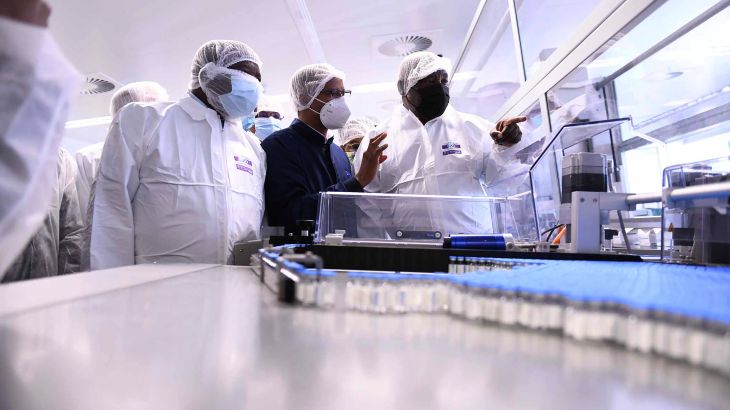
Are African-made vaccines the solution to vaccine inequity?
On Thursday, January 12 at 19:30 GMT:
The coronavirus pandemic has highlighted a variety of global health inequalities, prime among them has been the devastating consequences of vaccine inequity. While high-income countries and those with robust vaccine manufacturing capacity gained swift access to doses once vaccines became available, those without were forced to wait.
The continent of Africa has been particularly hard-hit. Just a quarter of the total population of the African continent has been fully vaccinated, significantly below the World Health Organization’s target of 70 percent by the end of 2022. Meanwhile, in April 2022 the WHO issued a warning that a number of vaccine-preventable diseases were on the rise in Africa in part due to access interruptions during the pandemic.
99 percent of vaccines administered across Africa are imported, and the continent only produces an estimated 0.01 percent of the global vaccine supply. While reliance on vaccines made outside of the continent has long been the norm, the pandemic has invigorated calls for African-made vaccines.
Experts say increasing African-made vaccines is an essential step towards combating current diseases while also safeguarding against future pandemics. In 2021, leaders of the African Union pledged to increase Africa-produced vaccines to 60 percent by 2024 to spur vaccine independence. Though overcoming stringent restrictions by pharmaceutical companies and pricing concerns are barriers to be overcome.
In this episode of The Stream we discuss the progress and challenges facing those working on vaccine development and equity in Africa.
On this episode of The Stream, we speak with:
Achal Prabhala
Coordinator, AccessIBSA project
accessibsa.org
Petro Terblanche
Managing Director, Afrigen Biologics
afrigen.co.za
Dr Ayoade Alakija @yodifiji
WHO Special Envoy, Access to COVID-19 Tools Accelerator